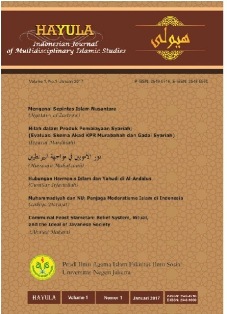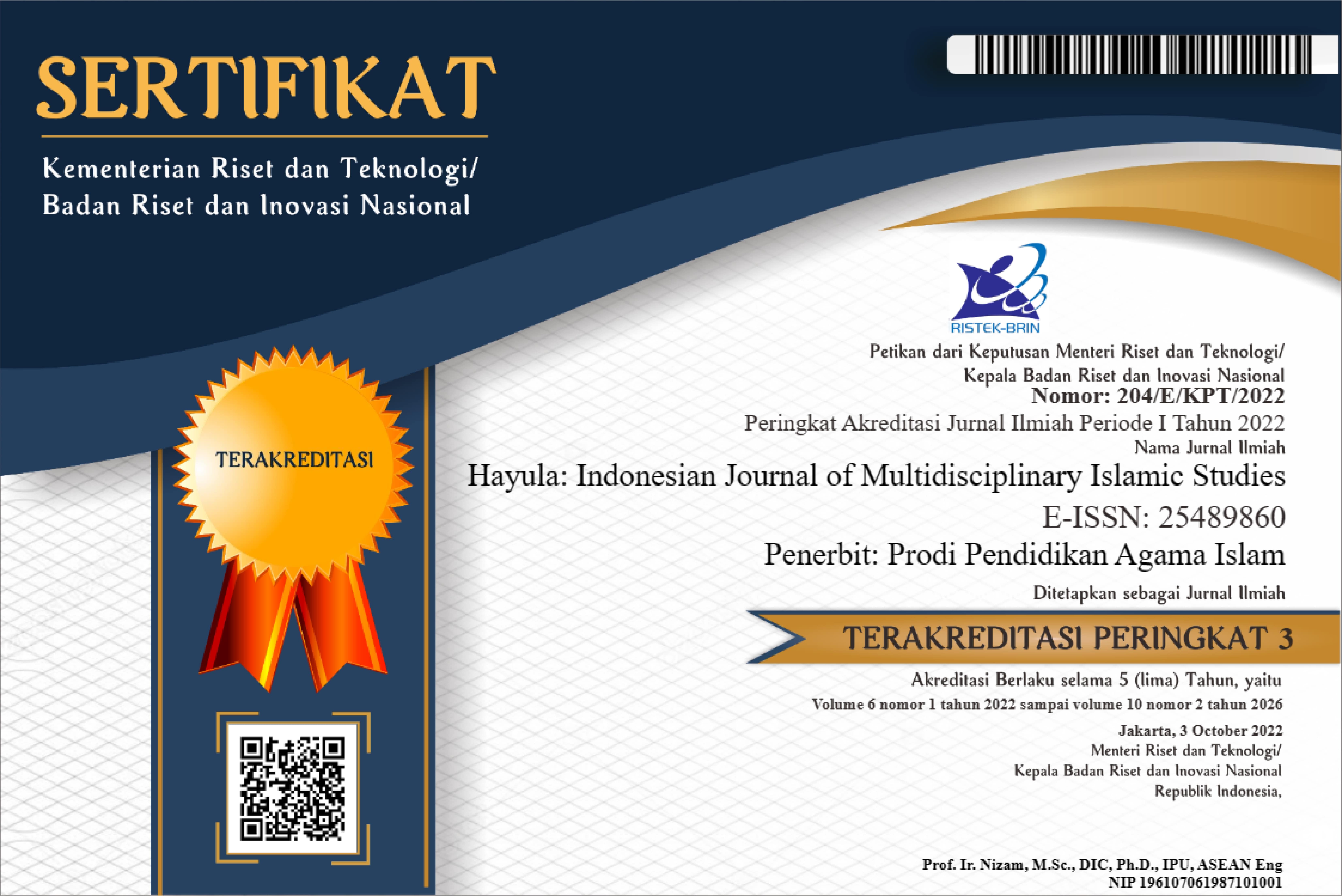Pola dan Narasi Gerakan Keislaman di Universitas Negeri Jakarta
DOI:
https://doi.org/10.21009/004.2.07Keywords:
gerakan keislaman, kampus UNJ, pola dan narasi keagamaanAbstract
This study aims to examine the patterns and narratives of the Islamic movement in Universitas Negeri Jakarta. The type of research is qualitative with a case study approach. The results of this study indicate that there are two types of Islamic movements in UNJ in the form of national and transnational movements. The pattern of the national Islamic movements in UNJ is represented by the academic activities organised through the PAI (Islamic Religious Education) study programme within the campus, and extra-campus MATAN organisation. Meanwhile, the transnational Islamic movements are represented by the Lembaga Dakwah Kampus (LDK) within the campus, and extra-campus organizations which include KAMMI, BMCI, and Nyantrend. The narrative of the Islamic movement promoted by the PAI (IRE) study programme through academic activities is Islamic moderation “more moderate more Indonesia,” MATAN as a national Islamic movement develops the narrative of Islamic Rahmatan Li al-’Alamin. LDK carries the slogan of Symuliatul Islam, KAMMI builds Islamic stories with Islam Shamil, BMCI Islamic narratives are preached with the slogan of Islam Kaffah, and Nyantred creates a narrative of Islam Ahlu Sunnah.
References
Akbar, W. (2018). BIN Ungkap 39 Persen Mahasiswa Terpapar Radikalisme. Retrieved from CNN News website: https://www.cnnindonesia.com/nasional/20180429023027-20-294442/bin-ungkap-39-persen-mahasiswa-terpapar-radikalisme
Amanullah, N. (2019). Islam Eksklusif Transnasional Merebak di Kampus Negeri. Retrieved from Detik.com website: https://news.detik.com/berita-jawa-tengah/d-4562815/peneliti-unu-ungkap- kelompok-islam-eksklusif-merebak-di-8-ptn
Azra, A. (2018). Radikalisme di Kampus Berkembang Karena Tak Ada Gerakan Tandingan. Retrieved from tirto.id website: https://tirto.id/radikalisme-di-kampus-berkembang-karena-tak-ada-gerakan-tandingan-cPqQ
Hakam, A. (2015). Perkembangan Islam Mainstream dan Peran Signifikan Agensi Sosial di Indonesia. Jurnal Studi Al-Qur'an, 93.
Hakam, Ahmad, Anggraeni, D., & Fadhil, A. (2019). Tren Gerakan Keislaman Di Perguruan Tinggi Negeri: Tipologi, Metode, Dan Responnya Terhadap Fenomena Keberagamaan Di Indonesia. International Conference on Islam And Civilizations (ICIC).
Isnanto, B. A. (2019). Peneliti UNU Ungkap Kelompok Islam Eksklusif Merebak di 8 PTN. Retrieved from https://news.detik.com/berita-jawa-tengah/d-4562815/peneliti-unu-ungkap-kelompok-islam-eksklusif-merebak-di-8-ptn
Kailani, N. (2009). Kami Adalah Mujahidin Berpedang Pena: Studi Gerakan Dakwah Forum Lingkar Pena Yogyakarta. Universitas Gadjah Mada.
Priyahita, W. (2019). Bagai Cendawan Tumbuh Di Musim Hujan: Menguatnya Gerakan Islamisme Di Ugm Dan Potensi Disruptif Yang Ditimbulkannya. Jakarta.
Setara, T. peneliti. (2019). Wacana dan Gerakan Keagamaan di Kalangan Mahasiswa. Jakarta.
Syarif, U. A. (2018). Metode Kajian Pendidikan Agama di Universitas:Sebuah Alternatif. JURNAL AQLAM : Journal of Islam and Plurality, 119.
Wildan, M., & Dkk. (2015). Gerakan Islam Kampus: Sejarah dan Dinamika Gerakan Mahasiswa Muslim. In Sejarah Kebudayaan Islam. Jakarta: Direktorat Sejarah dan Nilai Budaya, Direktorat Jenderal Kebudayaan, Kementerian Pendidikan dan Kebudayaan.
Downloads
Published
How to Cite
Issue
Section
License
Authors who publish with this Journal agree to the following terms:
- Author retain copyright and grant the journal right of first publication with the work simultaneously licensed under a creative commons attribution licensethat allow others to share the work within an acknowledgement of the work’s authorship and initial publication of this journal.
- Authors are able to enter into separate, additional contractual arrangementfor the non-exclusive distribution of the journal’s published version of the work (e.g. acknowledgement of its initial publication in this journal).
- Authors are permitted and encouraged to post their work online(e.g. in institutional repositories or on their websites) prior to and during the submission process, as it can lead to productive exchanges, as well as earlier and greater citation of published works.
Users/public use of this website will be licensed to CC BY







